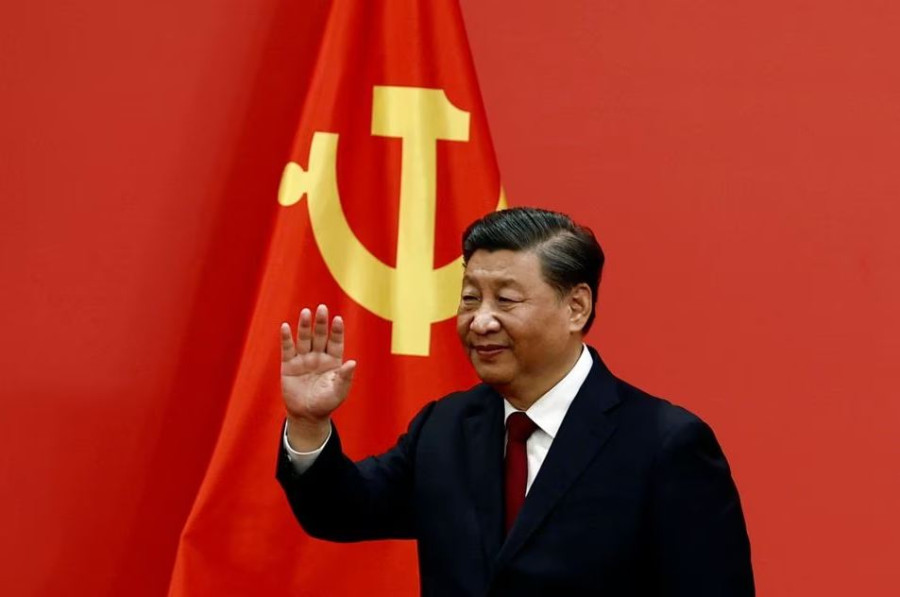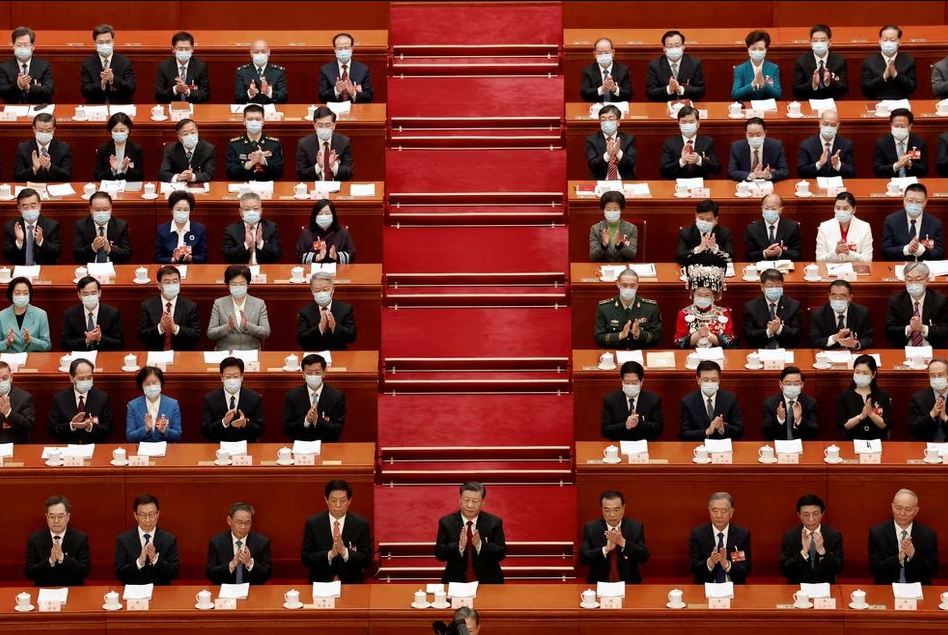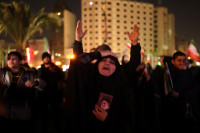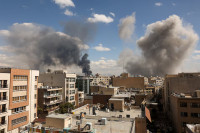World
Communist party session to confirm Xi’s 3rd term starts
Xi Jinping could pick Li Qiang, a Politburo Standing Committee member, to replace Li Keqiang as premier.
Purushottam Poudel
The Two Sessions of China that will elect Xi Jinping for his third presidential term kicked off on Saturday with the opening of the National Committee of the Chinese People's Political Consultative Conference (CPPCC).
The first session of the 14th National People’s Congress (NPC) starts on Sunday.
The CPPCC National Committee is the top political advisory body whose members offer proposals for the deliberation of state affairs. In principle, as China’s top legislature, the NPC is the most powerful state body under the Chinese constitution. In practice, however, the ruling Communist Party exercises more power.
Since the meetings of the NPC and the CPPCC National Committee overlap, the event is called the Two Sessions of the Communist Party of China.
This year's legislation will deliberate on emerging national issues, and concerns relating to Beijing’s foreign policy. The NPC Standing Committee has divided 35 bills into eight categories for initial and subsequent consideration.
At a press conference in Beijing on Saturday, Wang Chao, spokesperson for the first session of the 14th NPC, presented the eight specific areas that the country will focus on in the coming year.
Among them are upholding and improving the people’s congress system, building a high-level socialist market economy, implementing the strategy of invigorating China through science and education, building a strong socialist culture, ensuring and improving people’s livelihood, promoting green development, improving social governance system and improving the legal system for national security.
The NPC will be attended by 2,977 elected deputies from a diverse range of regions, ethnic groups, and sectors. Among the deputies, 442 are from ethnic groups, 790 women, 479 workers and farmers and 42 foreign-returned Chinese citizens.
At the end of the Two Sessions, the NCP unveils the country’s new cabinet. Last year’s NCCPC meeting, which commenced on October 16 and lasted a week, unveiled seven new members of the Politburo Standing Committee (PSC). They will lead the party in the days to come.
The Chinese president will be elected during the fourth session. He then nominates the prime minister during the fifth session of the 14th NPC, to be decided by the following session. At the sixth and final session, the premier nominates ministers. The State Council of China has a total of 28 ministries.
At the end of the Two Sessions, Chinese President Xi, 69, is expected to appoint a cabinet favourable to him. Xi was first elected the president in 2013 and for a second term in 2018.

Right now, according to China observers and experts, the Chinese Communist Party is divided into two camps over whether or not to change the zero-Covid policy. While Premier Li Keqiang was among those who supported a readjustment, President Xi was in favour of continuing the policy.
President Xi defended his administration's zero-Covid policy at the opening ceremony of the 20th NCCPC. Nonetheless, protests against the policy in several Chinese cities within a month after the Congress forced Beijing to relax the zero-Covid policy.
Li, who has served two terms as premier, will be replaced at the 14th National People's Congress but Xi will remain in office for another term.
China amended its constitution in 2018 to remove the two-term limit on the presidency. The Chinese constitution earlier had delimited the tenure of president and vice-president to a maximum of two terms, of five years each. The Chinese leader Deng Xiaoping in 1982 had introduced a time limit for the President to prevent a return to a Mao Zedong-style cult of personality in leadership.
Apart from the party general secretary and President Xi, the PSC consists of six members: Li Qiang, Zhao Leji, Wang Huning, Cai Qi, Ding Xuexiang, and Li Xi. They were chosen by the party's 20th National Congress, and if the 14th NCP elects them, they will be in charge of the various government portfolios.
Li Qiang, one of the seven Politburo Standing Committee members unveiled at the National Congress held in October last year, is now likely to be confirmed as the new prime minister of China.
Meanwhile, on the Belt and Road Initiative (BRI), Spokesperson Wang said that China has no political motives in any of its projects. In response to a query on the BRI and the associated risk of debt trap, he said: “More than 150 countries and 30 international organisations have signed in to BRI. China has no political strings attached to the fund it provides.”
Some Nepali politicians and experts have expressed fears that Chinese loans under the BRI could trap Nepal in debt. Nepal and China signed the BRI agreement in 2017 but the project implementation structure is yet to be developed.
China also clarified on Saturday that modernisation of the Chinese military possesses no threat to other countries.
“For many years, China's defence budget as a percentage of GDP has been essentially constant,” spokesperson Wang responded to a query on whether China would raise its defence budget for the upcoming year. “It is below the global average, and the growth is moderate and appropriate.”
The forthcoming NCP session will evaluate and approve China’s overall national budget, which includes the defence budget. The NPC convention lasts until March 13.




 9.7°C Kathmandu
9.7°C Kathmandu















